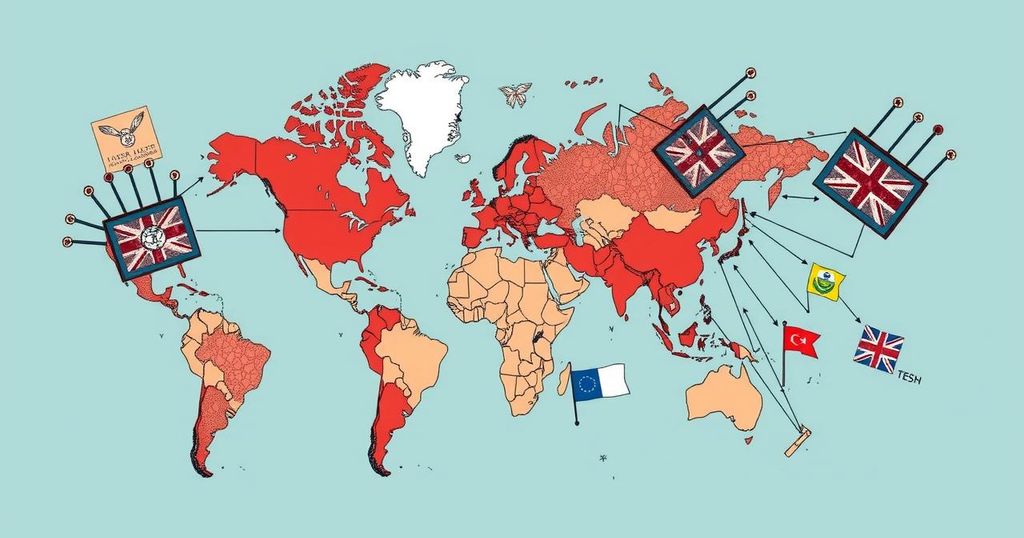Global Elections in 2024: A Year of Political Turbulence and Change

In 2024, over 70 countries faced electoral upheaval, with voters largely rejecting incumbents amid economic strife and political discontent. Key events included significant losses for long-standing parties in nations like India, South Africa, and the UK, coupled with a worrying rise of far-right movements globally. Allegations of interference and growing political dissatisfaction continue to pose challenges for democracy as the year concludes, raising concerns about integrity and electoral confidence.
The year 2024 has been marked by a significant wave of electoral upheaval across the globe, with over 70 countries experiencing voter discontent and ousting incumbent leaders. This widespread trend reflects a growing frustration with existing governance due to ongoing economic disruptions, such as high inflation and geopolitical tensions, notably the repercussions of Russia’s invasion of Ukraine. The toll of the pandemic, often termed “electoral long COVID,” has drastically altered public sentiment, with voters desiring change and expressing their dissatisfaction through ballots.
Countries from India to the United Kingdom witnessed substantial political shifts. In India, Prime Minister Narendra Modi’s party lost its majority, necessitating a coalition government for the first time in a decade. Similarly, voters in Britain, South Africa, and elsewhere opted for opposition parties or new political movements in a visible rejection of long-established incumbencies. Notably, these electoral changes have not only encouraged the rise of new or disruptive political entities but have also entailed a concerning expansion of far-right influence in several nations.
The fabric of democracy has faced strains, illustrated by protests in Mozambique and Georgia, coupled with allegations of electoral malfeasance in Romania, where a presidential runoff was rendered null due to reported foreign interference. Concerns over disinformation campaigns, particularly attributed to Russia, have further complicated the electoral landscape, compelling social media giants like Meta to take precautionary measures against deceitful narratives.
The global situation remains precarious, particularly after the surprising electoral success of Donald Trump in the U.S., an outcome that has invoked anxiety regarding future foreign policies. With escalating conflicts and political crises in nations such as Venezuela and South Korea, and challenges for incumbents in countries like Germany and Canada heading into 2025, it appears the tumultuous journey of democracy is poised to persist.
According to Seema Shah, “People want democracy. They like the theory of it, but when they see it actually play out, it’s not living up to their expectations.” This sentiment underscores the gap between democratic ideals and lived experiences, suggesting the need for substantial reforms to restore public confidence in democratic institutions.
The article discusses the significant shifts in global electoral politics during the year 2024, highlighting a prevalent trend of voter discontent with incumbent governments across multiple countries. The backdrop includes widespread economic challenges post-pandemic, political strife propelled by geopolitical tensions, and the rise of populism, particularly from far-right factions. This period of global elections has also been marred by allegations of electoral interference and disinformation, complicating the democratic landscape.
The tumultuous electoral events of 2024 reflect a global electorate increasingly dissatisfied with established political establishments, driven by economic hardships and a desire for change. This year’s outcomes indicate a shift potentially favoring populist and far-right movements, highlighting serious concerns regarding the integrity of democratic processes amidst rising disinformation. As countries prepare for further elections in 2025, the resilience of democratic principles will be rigorously tested against these emerging challenges.
Original Source: dailyjournal.net







